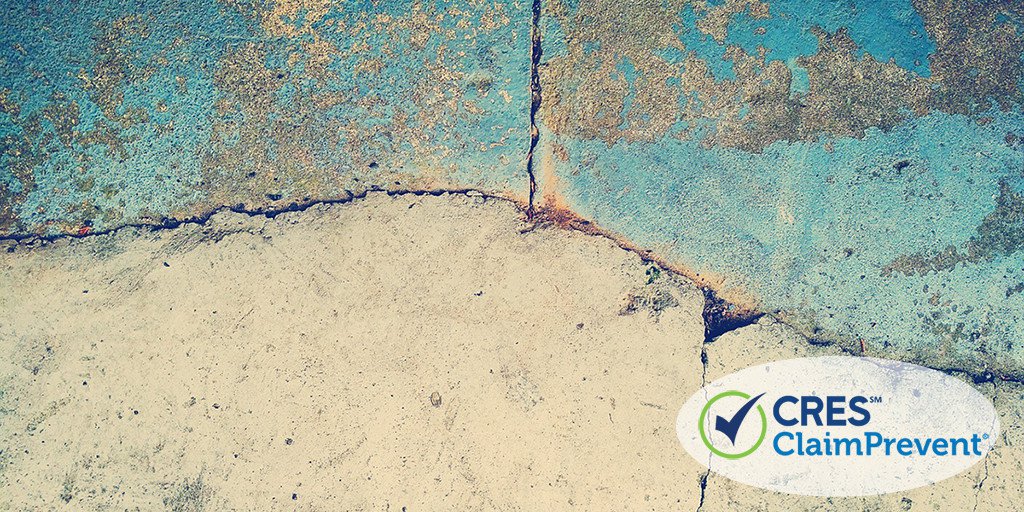Foundation issues are among the most common problems found in home inspections, and foundation defects and cracks are among issues you need to disclose in most places.
When foundation issues aren’t disclosed and show up later, a lawsuit is likely.
In Connecticut, a homeowner brought a civil case against Coldwell Banker Real Estate LLC, subsidiaries, a particular broker, and the former homeowner because of a crumbling foundation. The case may hinge on whether any of the parties knew about the foundation issues and failed to disclose them.
Are you at risk for real estate lawsuits caused by faulty foundations?
There are three things you can do to protect yourself from real estate lawsuits based on foundation issues.
Disclose and document
Specific disclosure laws vary by locality, but generally require disclosure of any known material defects. For foundations, growing cracks and leaks could signal problems.
In the case of the Connecticut lawsuit, hundreds, or by some estimate thousands, of homes in the north central and eastern part of the state are affected by crumbling foundations in homes of a certain age. The problem is linked to a mineral in the concrete used. Knowing that your foundation was done by the same supplier may be disclosable information.
If your client asks you if they should disclose something, advise them to do so. Make sure you document your advice to disclose — and any refusal you receive. You may still be responsible for disclosing, so seeking legal advice is wise in this situation.
See our ClaimPrevent® Topic Summary on Real Estate Seller Disclosures.
Defer to experts
One of the challenges in the Connecticut cases is the problem didn’t show up for many years and started as small cracks, which aren’t always a problem. As a real estate professional, you aren’t a structural engineer or a home inspector. Report what you observe. But if a client asks you if a foundation crack or small leak is a problem, tell them you aren’t an expert and encourage them in writing to get expert advice. Any claims you make about the foundation can come back to haunt you. Make it part of your standard written communication to encourage all buyers to get a home inspection.
Carry the right real estate E&O
Even if you document and are careful not to present expert opinions in areas like the condition of a foundation, you could face a real estate lawsuit. If you are sued or if a buyer or seller brings a complaint that could lead to a lawsuit, you’ll want legal advice right away. If you have CRES Real Estate E&O + ClaimPrevent®, you have access to expert local real estate attorneys for advice pre-claim. The CRES legal team can help answer questions about specific issues or take action that may help you avoid a lawsuit.
Having the right real estate Errors and Omissions insurance is a critical piece of protecting your business. It will serve you if a foundation issue leads to threat of a lawsuit.
